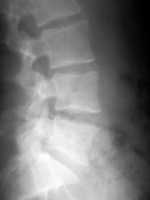Author Interviews, Health Care Systems, JAMA, Pharmacology, University of Pittsburgh / 31.10.2024
UPitt Study Compares Supply Chains and Drug Shortages Between US and Canada
MedicalResearch.com Interview with:
Katie J. Suda, PharmD, M.S., FCCP
Professor of medicine with tenure
Associate Director, Center for Pharmaceutical Policy and Prescribing
University of Pittsburgh School of Medicine
MedicalResearch.com: What is the background for this study?
Response: Our pharmaceutical supply chain is global where the manufacturing process for one drug may occur in multiple countries. Sometimes there are breakdowns in the pharmaceutical supply chain which may threaten access to medicines. Breakdowns in the supply chain occur for medicines manufactured in the U.S. and by international partners. While breakdowns in the supply chain occur for hundreds of drugs each year, not all result in a decrease in available supply (a “drug shortage”) because of action taken by manufacturers, pharmacies and drug regulators (e.g., the U.S. Food and Drug Administration [FDA]).
Drug shortages are a critical concern to public health as pharmacies, clinicians, and patients struggle to identify safe and effective alternatives. In addition, drug shortages have been associated with adverse patient outcomes and medication safety events. Recently, drug shortages have gotten worse with shortages occurring with increasing frequency and lasting longer. There has also been a shift in the types of medicines in shortage from drugs primarily used in hospitals, such as injectables, to oral medicines frequently used to manage outpatient conditions.
Countries have different regulatory authority and policy which may impact how drug supply chain breakdowns result in drug shortages. We wanted to know if there are differences between the U.S. and Canada in the frequency that national drug shortages occur after supply chain breakdowns are reported in both countries. Canada is a good comparator to the U.S. because Canada has similar drug regulatory standards and manufacturing inspections. Prescription drug coverage is also similar for the two countries where half of prescriptions are reimbursed through public insurance and half through private insurance and out-of-pocket.
(more…)




























